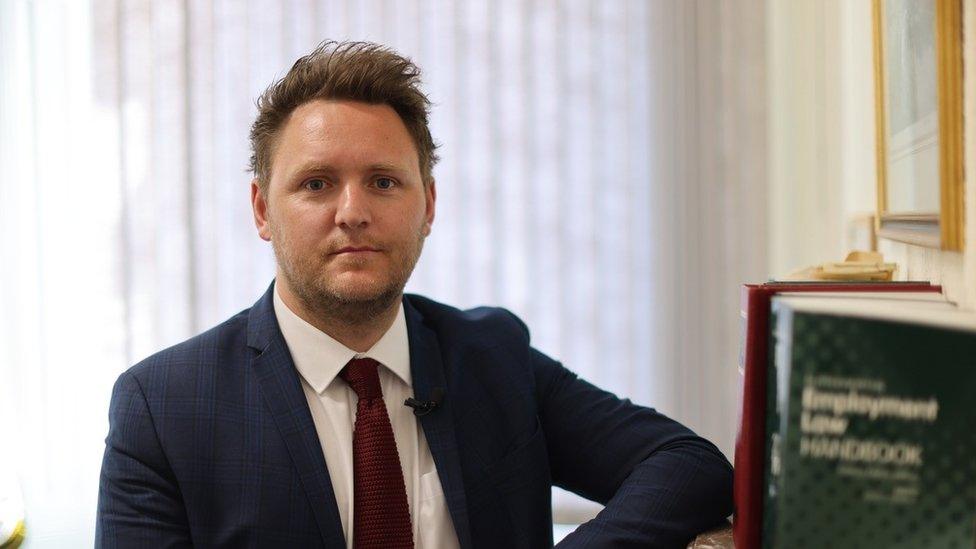Period dignity officer takes legal action after losing job
- Published

The appointment of Jason Grant sparked a heated online debate
A man who lost his job as period dignity officer is pursuing legal action against the group that hired him.
Jason Grant is taking action under the Equality Act, with the possibility of a sexual discrimination claim.
Tayside's period dignity working group said on Tuesday that it was scrapping the role following "threats and abuse".
Mr Grant's appointment sparked a heated debate online, with critics saying the job should have gone to a woman.
His role was created to ensure the legal right to free period products in public places and was described as the first of its kind in Scotland.
The working group – which comprises of representatives from Dundee and Angus College, Perth College, Angus Council and Dundee City Council – had said Mr Grant was the strongest candidate for the job.
Employment law specialist Ryan Russell, of MML Legal, said it was pursuing a case on behalf of Mr Grant under the Equality Act 2010.
Mr Russell claimed that Mr Grant was "publicly dismissed" before being given written confirmation that the role had been scrapped.

Solicitor Ryan Russell says his client was "publicly dismissed"
He said: "The partnership chose to remain completely silent in the last few weeks until publicly announcing his dismissal from the post.
"During this time, the partnership said nothing whilst Jason came under constant attack from all around the globe.
"There are many legal issues arising not only from his appointment but in the decisions that have been made not to support Jason or stand by their appointment which could impact his health, career and future prospects.
"If Jason was not a man, would he have been dismissed from the role? How would you feel if this was a member of your family."
Mr Grant had been expected to lead a campaign across schools, colleges and communities in Tayside to raise awareness of Scotland's law on period products and ensure that funding was allocated appropriately.
The role was funded by the Scottish government, which said it was not involved in making appointments to such posts.
The working group said it was considering "alternative ways" of providing period services.
It declined to comment on the legal action.